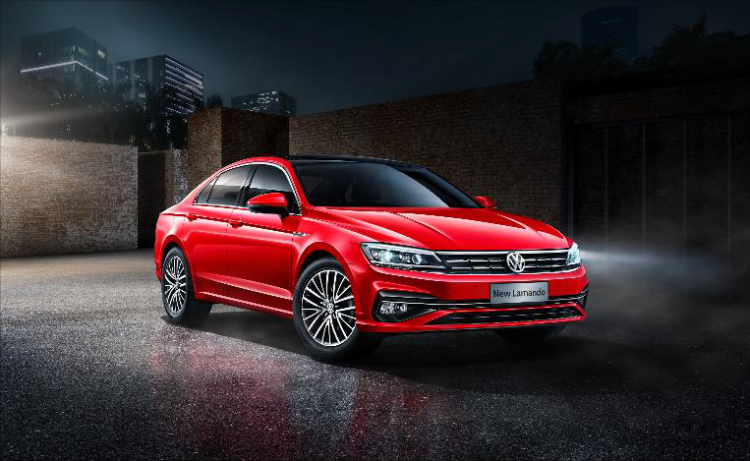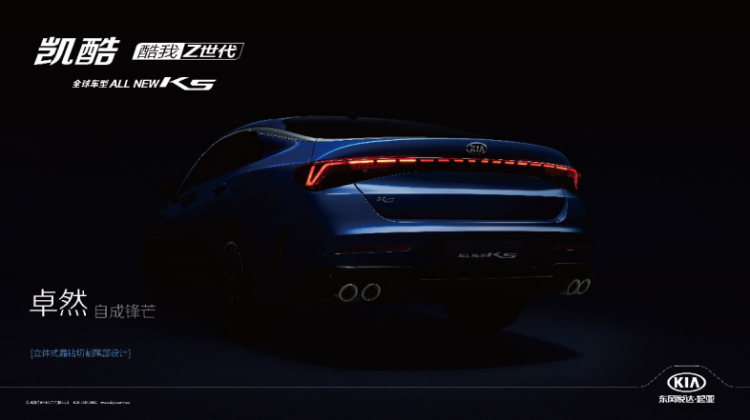A few days ago, the BMW Group announced the technical details of the BMW i Hydrogen NEXT power system for the first time, and reiterated that the company is systematically and comprehensively promoting the implementation of zero-emission travel. Under the guidance of the new “first strategy”, the BMW Group actively expands future travel solutions, has long been committed to the development of diversified power technologies, is customer-centric, and empowers customers with “the power to choose”.
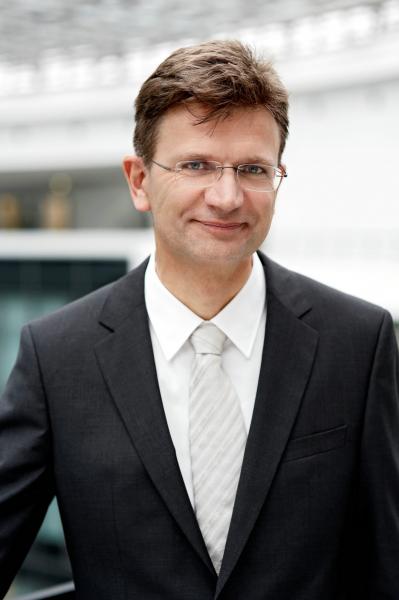
Mr. Fu Lexi, the director of BMW Group responsible for research and development, said: “We firmly believe that in the future, multiple power systems will coexist for a long time, because currently there is no one form of drive that can meet all the travel needs of customers around the world. In the long run, hydrogen fuel cell technology has great potential. It may become the fourth pillar of the BMW Group’s powertrain portfolio. This technology is especially suitable for large-scale models of the popular BMW X family.”
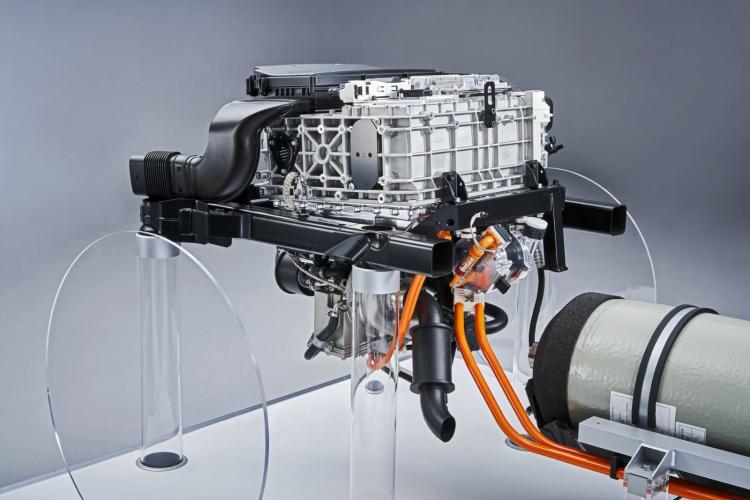
According to Jürgen Guldner, BMW Group Vice President for Hydrogen Fuel Cell Technology and Vehicle Projects, “The fuel cell system used in the BMW i Hydrogen NEXT powertrain produces a chemical reaction between hydrogen and oxygen in the air, which can generate up to 125 kW (170 hp) ) of electricity.” This means that the vehicle emits no exhaust other than water vapour. In BMW i Hydrogen NEXT, a DC converter is installed below the fuel cell to match the voltage level of the fuel cell to that of the electric powertrain and the high-power battery. The high-power type battery can not only be charged by the fuel cell, but also use the electricity generated by the brake energy recovery system.
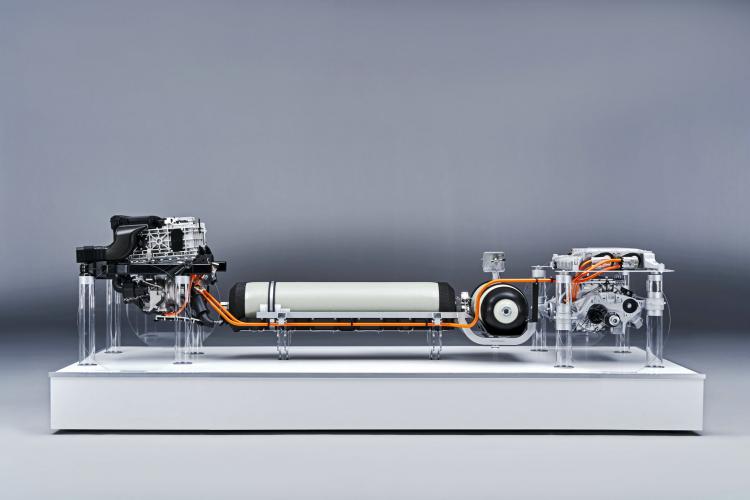
The vehicle also has a pair of 700-bar pressure tanks, which can hold a total of 6kg of hydrogen. Jürgen Guldner pointed out: “In this way, regardless of the weather, a long cruising range can be guaranteed. Hydrogen refueling only takes 3-4 minutes.” The fifth-generation eDrive electric drive system that will be used for the first time on the pure electric BMW iX3 will also Integrated into BMW i Hydrogen NEXT. When overtaking or accelerating, a high-power battery located above the electric motor injects extra power into the vehicle. The total system output of up to 275 kW (374 hp) ensures consistent BMW driving performance.
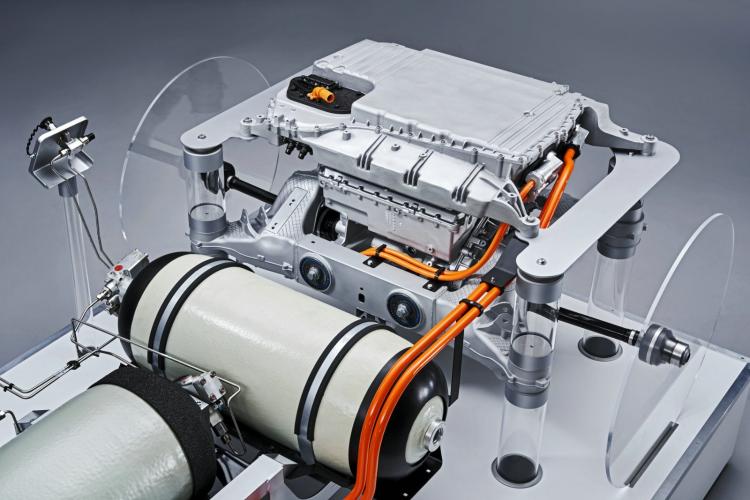
In addition, BMW i Hydrogen NEXT will be equipped with fuel cells jointly developed by BMW Group and Toyota Motor Corporation, and fuel cell packs and overall drive systems independently developed by BMW Group. According to the cooperation agreement, the two parties will work on the research and development of hydrogen fuel cell technology, including fuel cell power system, and scalable modular components. Since 2013, BMW Group and Toyota Motor Corporation have continuously deepened cooperation to promote the research and development and industrialization of hydrogen fuel cell technology. In addition, the two parties are also founding members of the International Hydrogen Energy Council.
The BMW Group is convinced of the long-term potential of fuel cell powertrains. Although, currently there are not enough external conditions for the application of hydrogen fuel cells, such as the necessary infrastructure. However, BMW has been vigorously promoting the research and development of hydrogen fuel cells, and has continuously reduced the manufacturing cost of hydrogen fuel cell power systems to a level that can support mass production. Once the infrastructure and hydrogen energy supply are in place, they can be put on the market immediately. Fu Lexi said: “We believe that in order for hydrogen to become a widely used power source, first of all, the output must be sufficient, the price must be competitive, and the production must use green electricity. At that time, hydrogen power will be mainly used in scenarios that are not suitable for electric drive.”
The BMW Group has accumulated decades of experience in the development of hydrogen energy power systems. In 1979, the BMW Group launched its first hydrogen-powered research vehicle, the BMW 520h; in 1997, it developed its own fuel cell for the first time; in 2013, it began testing the BMW Group’s first fuel cell electric vehicle. In 2022, the BMW Group plans to conduct experimental small-scale mass production of hydrogen fuel cell power systems based on the current BMW X5 model. According to different market conditions and requirements, the BMW Group will provide customers with fuel cell vehicles as early as the second half of the next decade.
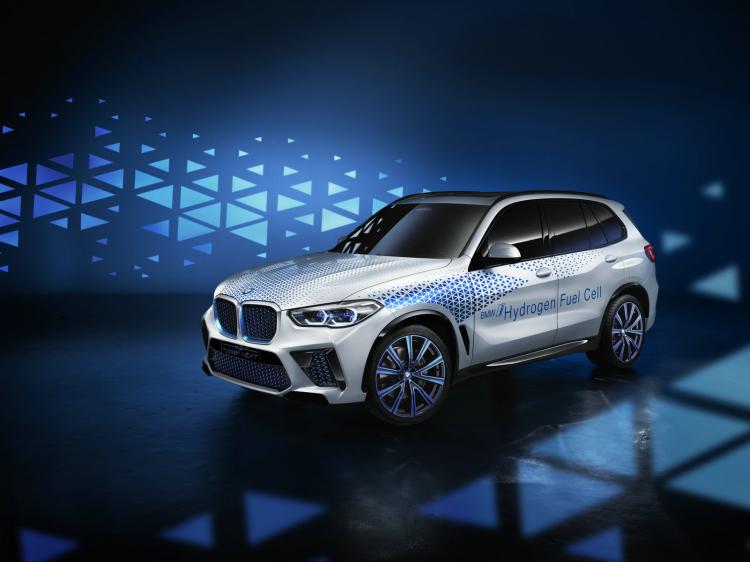
In addition, the BMW Group has also jointly developed advanced high-pressure hydrogen storage tanks with a number of colleges and universities, so that it can be easily adapted to various general-purpose vehicle architectures in the future. At the same time, it helps reduce the manufacturing cost of hydrogen storage tanks for fuel cell vehicles, enabling them to compete effectively with battery-powered vehicles.
At present, the BMW Group has launched electric models produced with sustainable energy, and will continue to expand the array of models in the future. It is expected that by 2023, the BMW Group will launch a total of 25 electric models, at least 12 of which will be pure electric models.


